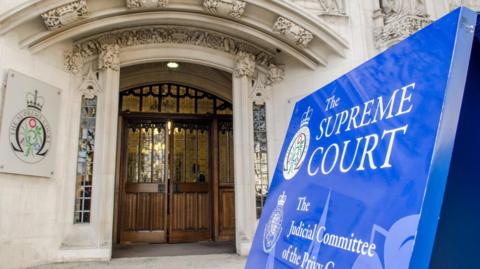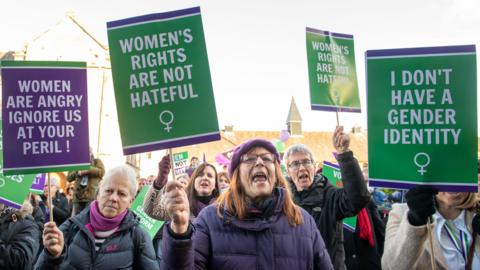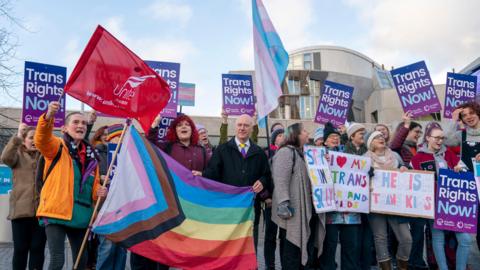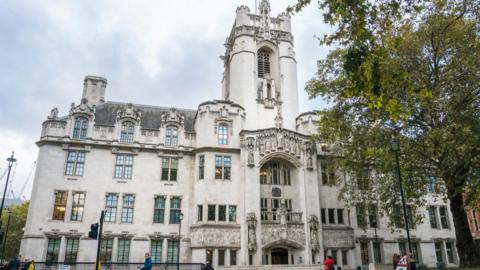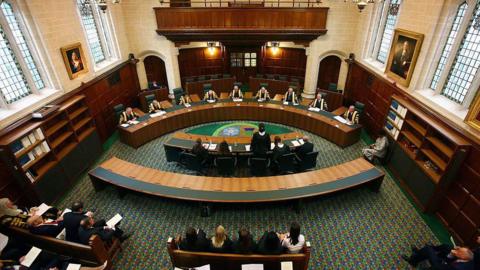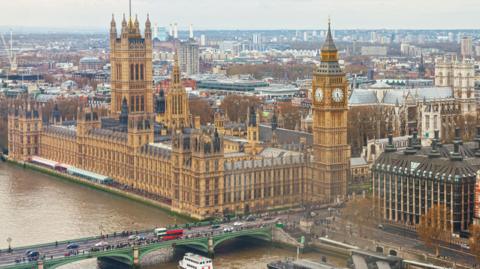The issue being considered by the court is whether “a person with a full gender recognition certificate - which recognises their gender is female - is a ‘woman’ for the purposes of the Equality Act”.
Aidan O'Neill KC, representing For Women Scotland, described that premise as a "legal fiction".
He argued for the "common sense" meaning of the words man and woman, telling the court that sex is an "immutable biological state”.
The KC said that definition of sex was necessary to protect the rights of women.
For Women Scotland argue the Equality Act supersedes the GRA thanks to a subsection of the 2004 Act which nods to it being subject to “provision made by … any other enactment”.
Mr O'Neill denied that For Women Scotland's case was "transphobic", arguing that it could never have been parliament’s intention for equality law to have “absurd or nonsensical outcomes”.
He gave the example of a heterosexual pregnant man getting a full GRC. He said they would in theory become a same-sex attracted woman. The court heard this could leave lesbian associations with "no choice but to admit natal men into their ranks”.
The lawyer said this and several other examples he gave were evidence of the patriarchy in action. He said the court should not “capitulate” to the patriarchy, urging judges to “confront” it.
He raised the issue of women-only spaces such as hospital wards, refuges and prisons and said admissions could be decided only by the “paperwork” of a GRC.
The Scottish government meanwhile essentially argues that the two pieces of legislation are clear in their language, and that MPs knew what they were doing when they passed them.
It says there is "no express provision" made in the Equality Act to affect the GRA's wording that a certificate changes someone's sex.
Indeed it says there are "clear indications" in the 2010 Act that the GRA "is intended to continue to have full effect" - "namely to reflect, by way of a person having acquired another gender, a change as a matter of law in their sex".
Ruth Crawford KC will speak for the Scottish government.
Five judges will hear their arguments - headed by the court's president, Lord Reed - and will retire to consider them before issuing a judgement at a later date.
